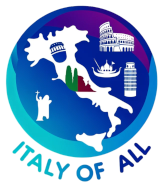The province of Rome, encompassing the capital city of Italy and extending into the surrounding Lazio region, stands as a pivotal area of immense historical, cultural, and political significance. Known globally for its incomparable historical sites, Rome province is a dynamic blend of the past and the present, where ancient history coexists with a vibrant modern life.
Geographically, the province stretches from the Tyrrhenian Sea to the central Apennines, featuring a diverse landscape that includes coastal areas, rolling hills, and parts of the rugged mountains. The Tiber River runs through the province, playing a crucial role in its historical development and continuing to be a focal point of urban life and culture in Rome.
Historically, Rome’s history is profoundly rich, dating back over 28 centuries. As the heart of the Roman Empire and later the seat of the Papacy, it has been a center of power, culture, and religion for much of its existence. The province’s landmarks like the Colosseum, Roman Forum, and Vatican City are sites of immense global significance, attracting millions of visitors each year.
Culturally, Rome is a global cultural powerhouse, renowned for its contributions to art, literature, and philosophy. It houses some of the world’s most important museums, galleries, and institutions, such as the Vatican Museums and the MAXXI (National Museum of the 21st Century Arts). The city’s cultural calendar is packed with events ranging from live music and opera to international film festivals like the Rome Film Festival.
Cuisine in Rome is central to its identity, with traditional dishes that are known worldwide, including “carbonara,” “amatriciana,” and “cacio e pepe.” These culinary staples are accompanied by lesser-known but equally cherished dishes such as “carciofi alla romana” (Roman-style artichokes) and “supplì” (rice balls with mozzarella). The surrounding countryside contributes fresh produce, meats, and cheeses, which are integral to the local gastronomy.
Economically, Rome’s economy is diverse, driven by a mix of public sector and governmental bodies, a burgeoning tech industry, and a robust tourism sector that is among the most significant in the world. The presence of the Vatican also adds a unique economic and cultural dimension. Additionally, agriculture plays an important role in the rural areas of the province, with products like olive oil and wine being significant contributors.
Despite challenges such as managing over-tourism, urban sprawl, and economic disparities between the city and more rural areas, Rome is continually evolving. Efforts are underway to enhance sustainable tourism, preserve its vast historical heritage, and improve infrastructure and services to meet both the needs of residents and visitors.
Overall, the province of Rome offers a compelling mixture of timeless heritage, cultural richness, and dynamic modernity. Its ongoing initiatives to foster sustainable development while preserving its unique historical legacy ensure its continued role as a cornerstone of Italian and global culture
Comuni in Rome Province:
- Anguillara Sabazia
- Ariccia
- Artena
- Allumiere
- Bellegra
- Anzio
- Anticoli Corrado
- Arsoli
- Ardea
- Arcinazzo Romano
- Affile
- Albano Laziale
- Carpineto Romano
- Bracciano
- Canale Monterano
- Castel San Pietro Romano
- Capranica Prenestina
- Castel Madama
- Camerata Nuova
- Castelnuovo di Porto
- Canterano
- Castel Gandolfo
- Castel Colonna
- Campagnano di Roma
- Casape
- Capena
- Ciampino
- Fiano Romano
- Fiumicino
- Civitella San Paolo
- Ciciliano
- Cerveteri
- Filacciano
- Cerreto Laziale
- Formello
- Colleferro
- Cineto Romano
- Gallicano nel Lazio
- Lariano
- Ladispoli
- Mazzano Romano
- Marano Equo
- Mentana
- Gerano
- Guidonia Montecelio
- Frascati
- Magliano Romano
- Genzano di Roma
- ManzanoManziana
- Lanuvio
- Licenza
- Genazzano
- Morlupo
- Nazzano
- Nerola
- Montorio Romano
- Nettuno (BI)Netro
- Nemi
- Olevano Romano
- ** Monte Compatri
- Monteflavio
- Moricone
- Montelibretti
- Palestrina
- Palombara Sabina
- Monte Porzio Catone
- Monterotondo
- Percile
- Rocca di Papa
- Sambuci
- Ponzano Romano
- Rocca Priora
- Pisoniano
- Rocca di Cave
- Rome
- Rocca Canterano
- Roccagiovine
- Sacrofano
- Rignano Flaminio
- Saracinesco
- Sant’Oreste
- San Gregorio da Sassola
- Santa Marinella
- Sant’Angelo Romano
- San Vito Romano
- Segni
- San Polo dei Cavalieri
- Trevignano Romano
- Valmontone
- Velletri
- Tolfa
- Zagarolo
- Vivaro Romano
- Vallinfreda
- Vicovaro
- Vallepietra
- Torrita Tiberina
- Trevignano
